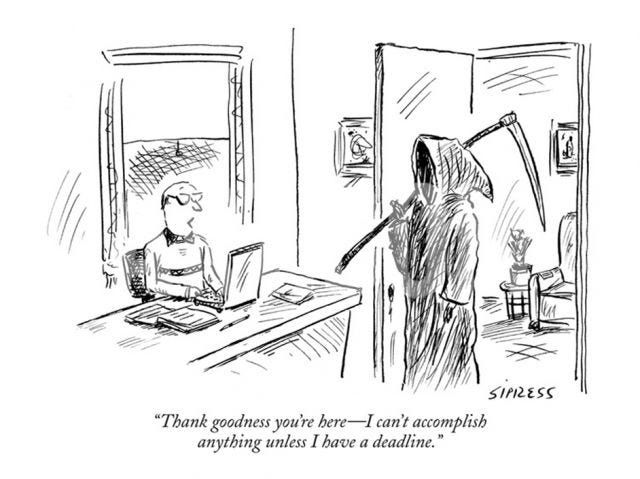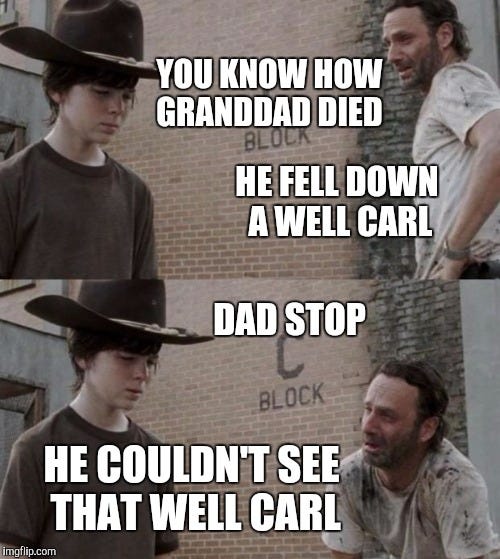EPISODE 233: ANXIETY DREAMS
(Apparently they've found the Rebel bass.
It was by the Windex.)
POP CULTURE SPIRIT WOW
A few weeks ago I updated my Twitter app – normally not a big deal, nor something I do very often; it’s fine, Twitter, leave well enough alone.
I was shocked to find at some point in the last few months they’d made one very small change that completely changed the experience. Now, likes and retweets would be updated in real time. Which is to say, every single tweet would be accompanied by a constantly running ticker of love (or silence).
Every single tweet, constantly changing (or not changing, and clearly implying that tweet/person has no love in the universe and why would you want to be attached to that/them.
It’s crazy. Who in God’s name thought that was a good idea? ++ Also, what’s the deal with online ads? The internet’s been around more than twenty years, and seen all kinds of technological innovations. But we’re still not that far screens filled with ugly pop-up banner ads. It makes no sense. If you don’t have an Ad Blocker (and you should definitely get an Ad Blocker), at times the internet is like going to a neighbor’s house and being force fed bad sheet cake through your eyeballs.
Writer Virginia Heffernan thinks that might be the purpose. “Anxiety is much more than a rookie response to internet-borne humiliation and weakness,” she writes. “Sometimes it seems like the animating principle of the entire commercial web. That’s part of the reason for our decade-old retreat to apps, where McModern design and the illusion of walls seems like a hedge against the malware and rabble of the original web metropolis.”
From an advertising point of view, it’s a position with some merit. Disney parks make their money by trying to get you to a place emotionally where you feel so happy and comfortable that you don’t even care about things as silly as money or bank accounts or college funds, WE NEED MORE FROZEN.
But a lot of advertising swings the other way; they tell us there’s something wrong with us, or something we’re lacking. The idea is, we’ll buy stuff to end that sense of discomfort they’ve created.
I’m not sure I buy that what’s going on online. Ugly pages filled with nightmare pop up ads don’t make me interested in buying what they’re selling. They just make me angry. On Twitter I block pretty much every advertiser I get. (I keep waiting for the day when I will have blocked all of them and my feed will be just people. It’s been four or five years. Not there yet.)
But I do like her point that the internet makes us anxious. She offers an interesting solution, too – when you go online, instead of thinking of yourself as entering a world, thinking of yourself as opening a book.
Paradoxically, framing the internet as a text to be read, not a life to be led, tends to break, without effort, its spell. Conscious reading, after all, is a demanding ocular and mental activity that satisfies specific intellectual reward centers. And it’s also a workout; at the right time, brain sated, a reader tends to become starved for the sensory, bodily, three-dimensional experience of mortality, nature, textures, and sounds—and flees the thin gruel of text.
In other words, if you tell your brain you’re reading a book, it’s going to respond in kind, tell you when it’s full up and needs to rest/watch Grey’s Anatomy. And you’re more likely to listen.
Also, Heffernan thinks if we think we’re reading a book rather than entering a community, we’ll walk away from the crazy people more easily. You stop feeling like the bullies are surrounding you and you have to fight your way out. They’re not. We’re free to go.
I don’t know it if works, but it seems like it could be an interesting idea to test out. ++

I had a dream the other night that Steve Martin was selling his home, which was a three story building that somehow looked very San Francisco but was in New York. I had no interest in buying it (though apparently I had the means), but a friend convinced me we should at the very least go check it out, because hey, Steve Martin.
I remember no details of the house other than everything inside it was a little bit slanty – again, San Francisco; and, that once we were walking around, I realized that it was the “Murder House”. Some sort of terrible violence had previously happened there, and the house was thought to be haunted.
I really didn’t want to stay once I had remembered this. But before I could leave Steve Martin accosted me and told me that as I had come to visit saying I was interested in the house I now had to buy the house. Which somehow seemed impossible to refute. (I hate dream logic.)
So then I owned Steve Martin’s haunted Murder House, but there was absolutely no I was ever going to sleep there or visit. But it didn’t matter; I could not sleep at my place anymore, because I was pretty sure there was something sitting in the chair across from my bed watching me.
Scariest of all, when I woke up I couldn’t tell whether I had only had that experience of something watching me in my dream, or whether I had repeatedly woken up in the middle of the night with the feeling or fear that there was something there. But I’m pretty sure it was the latter.
Of course it was all nonsense, just a dream.
OR WAS IT? ++ Top three pieces of advice I’ve ever gotten about dreams:
Everyone in the dream is you.
Steve Martin owns a house? More like, you’ve got some real estate somewhere inside you that scares the crap out of you. And you better deal with it because it’s coming for you, Poppy.
Dying in a dream is a good thing.
Death=letting go. Therefore dying in a dream is an invitation to let go of something – a worry, a belief, a commitment, some part of you that no longer fits. It’s terrifying, because no one likes to let go. But what’s on the other side is liberation.
The only person who can interpret your dreams is you.
Talking out dreams is often the only way to figure them out, in my experience. But no one can tell you “This is what your dream means.” They may have ideas, but ultimately you’re the one that puts it together. ++ A little overwhelmed by a couple writing projects I desperately want off my desk but I’ve also let go too long. And in the meantime having a hard time re-breaking the first scene of a pilot. Pretty sure my anxiety about not being able to crack it is getting in the way of me having any chance of cracking it. Feedback loops are awesome. See: atomic bombs; family conflict; and intergenerational suffering.
My guiding light right now, as I've mentioned before, is David Lynch’s "You Can Always Go Slower" approach. That moment that you think should last ten seconds? Let it go a minute, and watch what happens. There’s so much more there all around us than we usually take the time to see. Go slow and you’ll see.
In real life, if you rush people they’re not going to want to spend time with you because you’re awful. And you’re going to miss what’s really interesting about them. Characters, it turns out, are pretty much the same. If you don’t give them the time to breathe, all you’ll ever be able to share of them is the very superficial.
So what I’m telling myself for the moment is, stop worrying about plot twists and the punchy dialogue and wait on your characters. Give them the time and the room where they can surprise you, and also themselves.
We’ll see how we go.

++
POP CULTURE TIP OF THE WEEK FOR CATHOLICS:

On principle I can’t stand taking already successful properties and rebooting them. But the new Netflix version of “One Day at a Time”, which reimagines the setting as a Catholic Cuban-American family in Los Angeles, has been such a nice surprise. It weaves together family and faith so well. And the conversations the characters have on different issues sound like the actual conversations that ordinary people have, rather than the typical weird Hollywood fantasy.
Truth in advertising, I might have recently spent a day consulting for the show on a religious issue. A day I am henceforth describing as “Did I Tell You I Spent A Day with Rita Moreno”?
(She may remember it differently.)
But even so, you should check it out. I swear, it’ll sneak up on you.
Like a good meme.

++ LINKS ++
Scientists now believe swearing is cathartic and may even help us cope with pain.
Also, apparently the richer vocabulary you have in general, the greater your capacity for swearing. !%!% Yeah.
September 1, 2017 marked the exact day on which Harry Potter’s son Albus began school at Hogwarts. So of course this happened.
Richard Rohr had a great piece this week about journeying through darkness. A couple great sections:
It takes a long time to purify the experience of dysfunctional family life, abuse, manipulation, shaming, negativity, or judgmental attitudes. As St. John of the Cross (1542-1591) described, our gods must each die till we find the true God. Or as Meister Eckhart (c. 1260-1327) put it, “Let us pray to God that we may be free of God.” [1]...
Darkness is sacred ground. The God who calls us into darkness will also sustain us and lead us through it. “God . . . brings the dead to life and calls into being what does not yet exist” (Romans 4:17). Resurrection is the one and only pattern.
Lastly, if you need something else to make you think we’re living in the past’s horror story future, check out these recent photographs of old postcard locations.
On Wednesday the Psalm response was “I believe that I shall see the good things of the Lord in the land of the living.” Maybe that sounds naive in light of, um, everything? But it keeps running through my head, and not as #RESIST slogan so much as the long view on the truth.
Things are crappy now. Really crappy. But today’s not the end of the story. Not by a long shot. Keep going.

